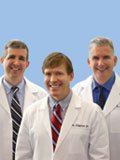
More Dental Health Articles
Brush and Floss Your Teeth For a Longer, Healthier Life
Tooth brushing is one of the first lessons of personal care that we learn as children for many of us, brushing our teeth is one of the first “health habits” that we are taught in life. Brushing and flossing your teeth is the simplest and most cost-effective way to preserve your oral health and to enjoy a lifetime of healthy teeth and gums.
The American Dental Association (ADA) recommends that people brush their teeth twice every day once at night before going to bed, and once in the morning. Brushing your teeth at night helps to remove bacteria and keeps your mouth clean while you sleep. Brushing your teeth in the morning helps freshen your breath and removes any bacteria that built up during the long night of sleep.
In addition to brushing your teeth twice a day, the ADA recommends that you floss once a day as well. Flossing is important because it allows you to clean in between your teeth removing bacteria and plaque, and keeping your gums healthy. Flossing helps keep your gums in shape. If you don't floss often enough, your gums might bleed, which, if you're not careful, can be a sign of possible gum disease and infection.
Your oral health can be a reflection of your overall health. Sometimes the first sign of a disease shows up in your mouth. In other cases, infections in your mouth, known as periodontal disease, can cause problems in other areas of your body.
More than 75% of Americans over the age of 35 have some form of gum or periodontal disease. Signs of periodontal disease include bleeding gums when brushing or flossing; red, swollen or tender gums; loose teeth; persistent bad breath; or receding gums. Sometimes there are NO obvious signs of periodontal disease. That is why routine professional dental exams are so important to your overall health.
Periodontal disease ranges from simple gum inflammation, called gingivitis, to a more serious disease, called periodontitis that causes gum tissue to pull away from the teeth forming pockets that become infected. Periodontitis results in damage to the bone supporting your teeth, and ultimately the loss of your teeth.
Periodontal disease is a chronic bacterial infection of the gums, and the byproducts of oral bacteria can enter the bloodstream. When oral bacteria escapes into the bloodstream it increases inflammation throughout the body and can injure major organs. Chronic inflammation is recognized as a significant factor in aging and disease.
Bacteria and inflammation from periodontal disease is associated with a number of serious health problems including
Heart disease
Diabetes
Dementia
Rheumatoid arthritis
Premature birth
Joint replacements Gum disease is a major risk for infections in your joints after joint replacement surgery. Maintaining healthy gums and teeth is critical for preventing serious problems in your new joints. Current guidelines recommend taking antibiotics before having your teeth cleaned and any necessary dental work. Be sure to list joint replacements on your medical history at your dental office. Antibiotics are also recommended prior to dental care for patients who have had heart valve replacement.
If you have symptoms of periodontal disease, please take it seriously and call us for a thorough dental exam.
Other Articles You May Find of Interest...
- Appliances Are In Now: How To Manage TMJ Disorder
- Why The Tooth Fairy Is Very Fun – and Important!
- Let’s Smile Dental’s 7&Up Club
- Strengthening Smiles: Understanding the Importance of Splinting Periodontally Involved Teeth
- Understanding Soft Tissue Grafting: A Key To Periodontal Health
- New Solutions for Dentures and Dental Implants
- Benefits Of Immediate Dental Implants

















